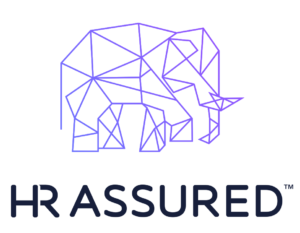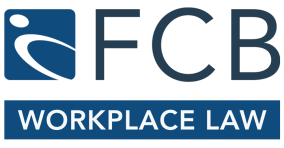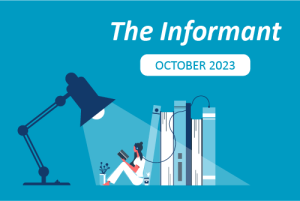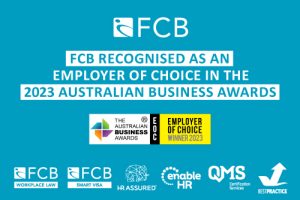Workplace productivity: how to get the most out of enterprise bargaining
February 18, 2015The Informant: Issue 2
Introduced in late 2014, the Federal Government’s Fair Work Amendment (Bargaining Processes) Bill (Bill) is intended to promote improvements in workplace productivity achieved via well-drafted (and well-negotiated) enterprise agreements. Unfortunately, the Bill’s fate is with a Senate not in favour of it, and which rejected another workplace relations amendment bill on 2 March 2015.
In this article we consider the idea promoted by this Bill, and share ideas for employers to take enterprise bargaining in 2015, particularly where there is an appetite to challenge the contributions an enterprise agreements can make to the overall efficiency and productivity of their business.
What is workplace productivity?
Productivity remains a buzz word in the 2015 industrial landscape as the Productivity Commission’s Inquiry into Australia’s workplace relations framework gathers pace and the Bill is debated in Parliament. So what exactly is ‘workplace productivity’?
The Productivity Commission defines productivity as ‘a measure of the rate at which outputs of goods and services are produced per unit of input (labour, capital, raw materials, etc.). It is calculated as the ratio of the quantity of outputs produced to some measure of the quantity of inputs used’.
In 2012, a Full Bench of the FWC described productivity as ‘a measure of the volumes or quantities of inputs and outputs, not the cost of purchasing those inputs or the value of the outputs generated’, and noted that ‘it is quite different in concept to the price of output and price of inputs, including the price of labour’.
Put simply, an improvement in workplace productivity occurs where there is an increasing output without greater investment in effort and resources or, alternatively, producing the same level of output from fewer resources and with less effort.
However, in our view any discussion of workplace productivity in a bargaining concept cannot sensibly occur without dialogue on the relative cost efficiency of the quality of output. That is, striving to improve productivity in enterprise bargaining should occur with the objective of achieving an overall economic benefit to the employer – whether it be by identifying labour cost efficiencies or by identifying labour output productivity improvements to offset agreed increases in rates of pay (or other conditions).
If the Bill ever passed the Senate, it would require the Fair Work Commission to be satisfied that productivity improvements in the workplace were discussed during bargaining for an enterprise agreement in order for the agreement to be approved. This means that if an employer does not bring ideas to improve productivity measures to the bargaining table, the Commission may decline to approve the agreement where the employees have voted to approve the agreement. It does not go so far as to mandate real productivity improvements be included as a condition of being approved by the FWC.
One obvious initiative to increase productivity is to associate increased output of a product / service with increased remuneration, also known as ‘performance based pay’. However, the efficacy of this method has mixed results and businesses should also look to identify more dynamic ways to boost productivity in the workplace.
Hurdles or roadblocks?
We often see businesses develop what they consider to be an ideal or preferred enterprise agreement, only to have the enterprise agreement fall over when it comes to the employee vote due to a lack of employee support. Employee engagement is crucial to any robust EA strategy, but how do you get your workforce on the same page?
The trap for many employers in negotiating enterprise agreements is that they start by asking ‘what terms can we include in our enterprise agreement that will boost productivity?’ when in fact the questions they should really be asking is ‘what motivates our workforce?’ or ‘what can we do to boost employee engagement?’. In our experience, the following hints and tips often prove useful:
1. Engage
Communicating with your employees before the commencement of bargaining and throughout the bargaining process is critical to maintaining employee engagement in the productivity measures you are seeking to introduce. How else will your employees and their representatives know and understand the key issues driving the need for improved productivity?
2. Listen to your employees
Understand what motivates your workforce, and position your ideas for the enterprise agreement in a way that resonates. Conducting employee surveys and questionnaires early in the bargaining process can assist in testing assumptions or confirming what really motivates your workforce. This in turn can provide insight in terms of how you might increase output without compromising gross margins. Making sure that surveys are conducted at the right time will often garner better results than a ‘one size fits all’ approach. For example, one workforce might respond well to an email survey while others would prefer face to face meetings in small focus groups.
3. Don’t be afraid to positively interact with relevant employee representatives
Trade unions can sometimes be perceived as a necessary burden in the bargaining process. The level of co-operation or hostility that a business can expect from a trade union will often depend on a number of different factors including past dealings, current employee engagement with the business / union and the size and location of your business (among others), which we regularly experience in industries such as manufacturing, aged care, health care and other blue collar industries.
However, having the right people to engage with union officials is invaluable during the bargaining process. Challenge those union representatives on identifying real productivity initiatives that could work in your workplace – after all, they spend a lot of time working across a range of employers and a range of industry sectors! Having someone who knows the rules of engagement and understands the representative’s convictions and values can save a lot of time and money and often avoids unnecessary headaches for businesses.
Want more information?
Negotiating an enterprise agreement can often throw up unique challenges for employers and employees alike. Some businesses might see these as insurmountable obstacles that cannot be overcome and decide not to engage in the bargaining process. At FCB, we have learnt to turn these potential roadblocks into small hurdles which can be overcome with practically sculpted solutions.
Our HR Consulting and Workplace Law teams have vast experience in navigating all facets of the enterprise bargaining process from employee consultation to dealing with strong-willed unions, as well as all aspects of the Fair Work Commission’s approval process.
If you are looking to bargain or are currently bargaining and want to elevate and improve your employee / union engagement by adopting these practical approaches, contact a us on (02) 9922 5188 or email us at info@fcbgroup.com.au.

























